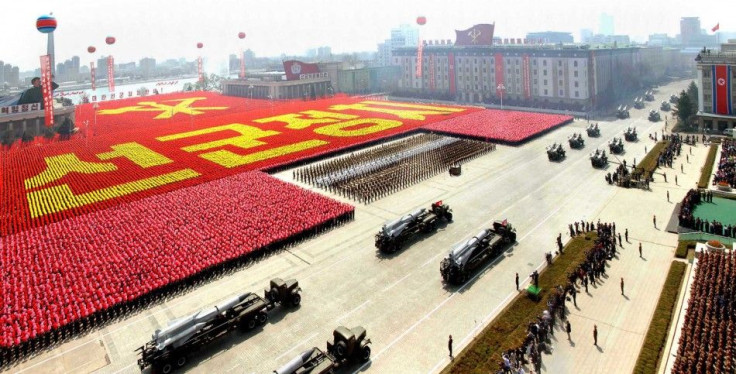North Korea Jamming South's Air Signals Affects Civilian Flights: Report

Electronic signals originating from North Korea have been allegedly intercepting scores of passenger flights in and out of South Korea after Pyongyang's recent threats of offensive action, including a sacred war, against the South.
Jamming signals stemming from the North had affected 241 flights by nine South Korean airlines and 11 flights operated by nine foreign airlines since last Saturday, the Agence France Presse reported, quoting a South Korean ministry statement. Though this wasn't the first time North has jammed South's air signals, widespread effect on civilian flights is unprecedented.
We've confirmed the GPS (global positioning system) jamming signals have been stemming from the North, Lee Kyung-Woo, a deputy director at the state Korea Communications Commission, told AFP.
The transport ministry reiterated the claims, but didn't say who was responsible.
Seoul officials ruled out the possibility of the interruption posing any safety risk to the aircraft, saying that the planes used other navigation devices, apart from the GPS.
A spokesperson for Seoul's Joint Chiefs of Staff said that South's military operations had not been affected.
Pyongyang recently accused South's leaders of disrespect during last month's centenary of the birth of North's founder Kim Il-Sung.
Meanwhile, the US, EU, South Korea and Japan have submitted a list of about 40 North Korean firms to the United Nations Security Council's sanctions committee for blacklisting, following Pyongyang's failed attempt to test a rocket April 13. China, however, has said that it will give consent to banning only two North Korean companies, which the rest of the Security Council sees as too few.
The list includes at least one North Korean bank and several trading companies, and some technology companies which may have assisted the government in missile or nuclear program.
Speculation was rife that North Korea was nearing completion of preparations to test a nuclear device for the third time after two attempts in 2006 and 2009, an unnamed source with close ties to Pyongyang and Beijing told Reuters.
A recent analysis of the satellite imagery of North Korea's nuclear test site appeared to show that frantic activities involving a chain of mining carts were underway.
South Korean intelligence, in a report early this month, said that the North was digging a new tunnel at the Punggye-ri nuclear site which was interpreted as a sign of a covert nuclear weapons program.
The latest analysis of the satellite imagery was obtained from a private satellite operator captured between March 8 and April 18. The analysis estimated that 282,500 cubic feet of rubble had been excavated at the site, where the North conducted its failed previous tests, the Associated Press reported.
Observers said that North Korea might have developed the capabilities to test a nuclear weapon using highly enriched uranium, raising concerns in Washington, Seoul and Tokyo.
© Copyright IBTimes 2024. All rights reserved.






















